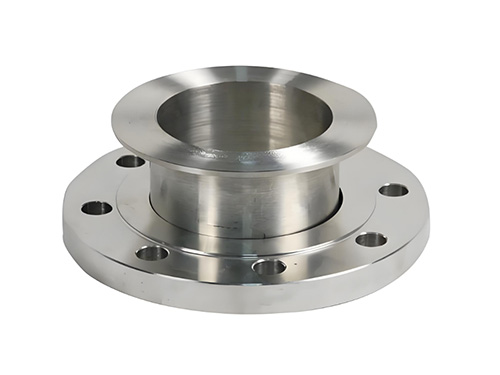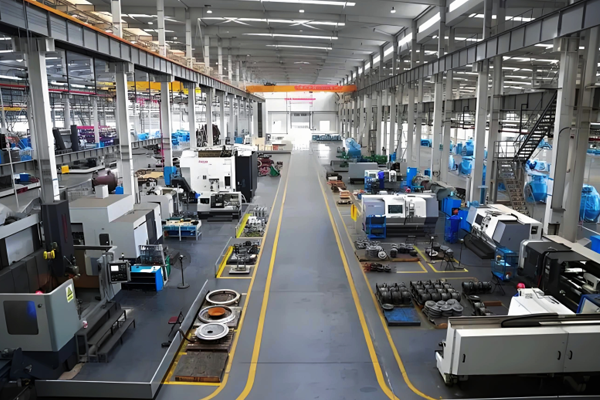
Lap Joint Flange
Lap Joint Flange is a detachable pipeline connector composed of a flange ring and a flanged short section. With its flexible installation and controllable cost, it is widely used in low-pressure, corrosive media, or pipeline systems that require frequent maintenance.
Structure and Installation
The loose flange consists of two parts: the flange ring is a flat ring with an inner diameter slightly larger than the outer diameter of the pipeline, and can be freely fitted onto the flanged short section; A flanged short section is a short pipe with a flanged edge, which is welded to the pipeline and the flanged part is in contact with the sealing surface of the flange ring. During installation, sealing is achieved by tightening the flange ring and flange with bolts, and the sealing surface is mostly flat or protruding, suitable for non-metallic gaskets such as rubber and PTFE. This structure allows the flange ring to slide along the flanging axis, adapting to slight displacement of the pipeline.
Core Features
Cost advantage: The flange ring can be made of low-cost materials (such as carbon steel), and the flanged short section can be made of corrosion-resistant materials (such as 316L stainless steel). The cost in large-diameter scenarios is 40% -60% lower than that of welded flanges.
Flexible installation: allows for ± 3mm axial displacement or slight angular deviation of the pipeline, reduces installation stress, and is suitable for environments with large temperature differences.
Convenient maintenance: There is no need to cut the pipeline during disassembly, and the flange ring can be removed by loosening the bolt, making it easy to replace gaskets or conduct maintenance.
Applicable scenarios and limitations
Suitable for corrosive chemical pipelines (such as hydrochloric acid transportation), low-temperature pipelines (such as LNG connecting pipes), and municipal water supply and drainage systems. But the pressure resistance level is low (usually ≤ 5.0MPa), the strength of the flange part is weak, and it is not suitable for high-pressure or severe vibration scenarios, and the diameter is mostly limited to DN1000 or less.
Following standards such as ASME B16.5 and GB/T 9120 is the preferred choice for balancing economy and practicality under low pressure conditions.

+86-15533769121

Jango

jango@yuntaopiping.com

Beixiaozhuangzi Industrial Zone, Mengcun Hui Autonomous County
Copyright © 2025-2026 http://www.yuntaopiping.com. All Rights Reserved Yuntao Piping Group.,Ltd.Copyright



